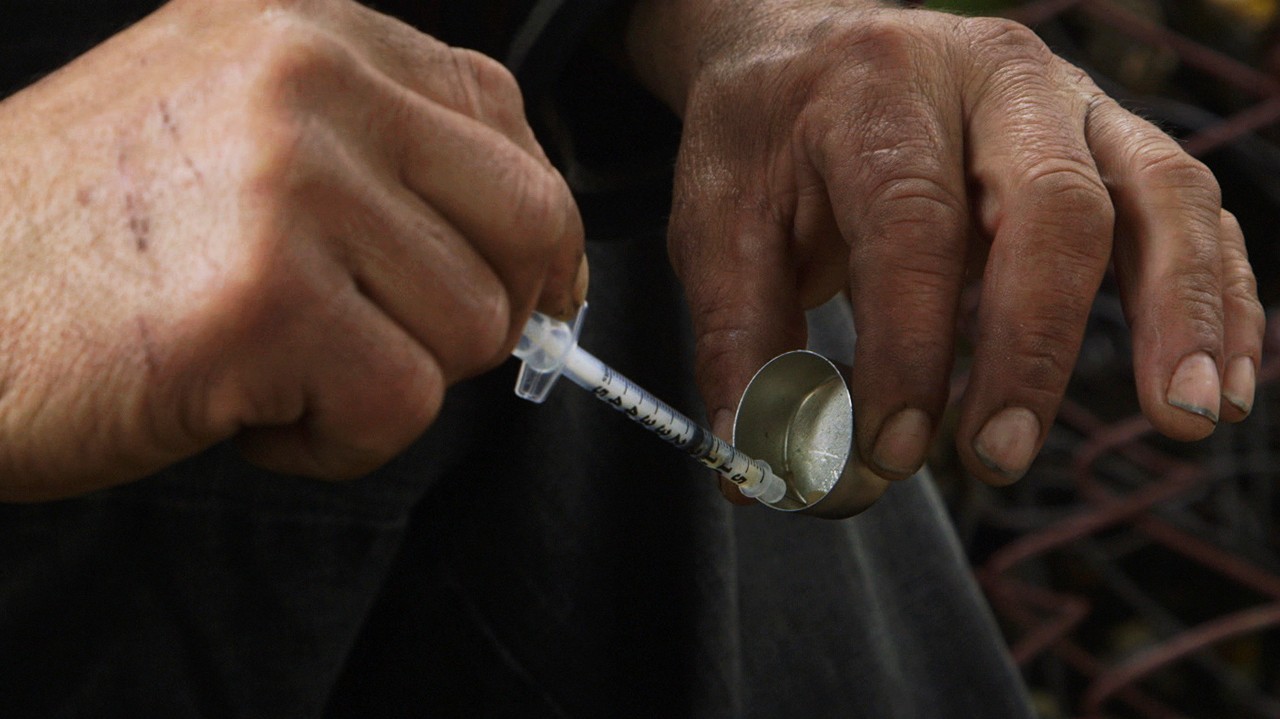In response to the opioid epidemic ravaging communities across the country, President Trump has declared a public health emergency, formed a commission to study the issue, and made policy recommendations.“Last year we lost over 64,000 Americans overdoses, that’s 175 lost American lives per day -- that’s seven lost lives per hour -- in our country,” Trump said last October during a White House ceremony focused on the crisis. “More people are dying from drug overdoses today than by homicides and motor vehicles -- combined.”
Advertisement
“We are going to overcome addiction in America,” Trump vowed. Yet the president’s actions don’t match his rhetoric.Trump’s budget request for 2019 includes $30 billion to fight drug addiction and, while few details have been released, that money will likely go toward treatment services and greater access to life-saving anti-overdose drugs like naloxone. But the budget request also slashes the budget for the the Office of National Drug Control Policy (ONDCP) by 95 percent, effectively gutting the federal body most involved in the fight against addiction. Meanwhile, Attorney General Jeff Sessions is dedicating crucial agency resources on the enforcement of federal marijuana laws, despite promising evidence that pot is a safer alternative to opioids for managing chronic pain.
Trump also left the post of drug czar, the policymaker who heads the ONDCP, vacant for a year. His first pick, Republican U.S. Rep. Tom Marino, bowed out after the Washington Post and 60 Minutes revealed that he had penned and pushed a law that defanged DEA efforts to crack down on sketchy opioid distributors. For many months, Trump’s deputy czar was a 24-year-old political neophyte who bloated his resume.Then there’s Trump’s opioid commission, explained by the president as the vehicle for finding innovative approach to solving the crisis, has been called a “sham” and a “charade” by a former member. In his October press conference, Trump promised that the commission’s members would span the country “to listen, to learn and to report back on potential solutions.”When Trump’s opioid commission released its comprehensive report on how to address the issue, it virtually ignored the progressive, effective programs crafted in the tiny little state of Vermont.
Advertisement

Yet when Trump’s opioid commission released its comprehensive report on how to address the issue, it virtually ignored the progressive, effective programs crafted in the tiny little state of Vermont.In its 2017 report, the White House’s opioid commission mentions the Green Mountain State exactly once, when it lauds the state’s slate of community recovery organizations tasked with linking individuals to community treatment and other social services.
But there are many other lessons to be learned from the state, which has been grappling with an opioid crisis for many years. In 2017, President Obama’s drug czar visited Vermont, and said the state’s approach was a “valuable national model.”Way back in 2014, former Vermont Governor Peter Shumlin dedicated his entire state of the state address to the opioid epidemic, declaring that “The time has come for us to stop quietly averting our eyes from the growing heroin addiction in our front yards while we fear and fight treatment facilities in our backyards.”State government adeptly and comprehensively responded to Shumlin’s call to action Multiple state and local actors sprung worked cooperatively to create a holistic, effective approach nicknamed “hub and spoke.” The approach to treatment -- detailed extensively in Vox article last year -- pairs addicts with wraparound services, from mental health treatment to pain management clinics. The state has also rolled out comprehensive public education efforts“The time has come for us to stop quietly averting our eyes from the growing heroin addiction in our front yards while we fear and fight treatment facilities in our backyards.”
Advertisement
Vermont also hatched a program called Rapid Intervention Community Court that diverts low-level drug offenders from prison if they agree to get treatment. Vermont also provides up to 120 days of addiction treatment to inmates, and is poised to eliminate treatment caps altogether.
The state also implemented aggressive prescribing policies early last year, and set up a statewide system to monitor opioid prescriptions. Blue Cross Blue Shield of Vermont, the state’s largest insurer, recently reported a 20 percent decline in opioid prescriptions following the implementation of the rule.In January, the state released a comprehensive report illustrating what techniques worked, and what challenges remain.Not only has Trump ignored these crucial findings from a state on the front lines of the fight, his policies would kneecap Vermont’s approach, and prevent other state laboratories from innovating.
Vermont’s opioid effort has been costly. But thanks in large part to federal Medicaid dollars and provisions in Obamacare that expanded insurance coverage to more middle class folks. Trump has proposed the full repeal of Obamacare, and his budget policies would seriously curb Medicaid funding. Nationally, the crisis is driven by a dearth of care of treatment options. According to a 2016 report by the Surgeon General, only about 10 percent of Americans with a substance abuse order get treatment. Trump could greatly expand care through a meaty budget request, but he’s tightening the belt and proposing harsh new policies, including a work requirement for Medicaid recipients.The state also implemented aggressive prescribing policies early last year, and set up a statewide system to monitor opioid prescriptions.
Advertisement
Last week, 160 advocacy groups -- including the American Association for the Treatment of Opioid Dependence and Treatment Communities of America -- sent a letter to Trump’s Health and Human Services Secretary charging that a proposed Medicaid work requirement would further complicate the fight against opioids.“These provisions will have a significant and disproportionately harmful effect on individuals with chronic health conditions, especially those struggling with substance use disorders and mental health disorders,” the letter reads.With the prospect of smart federal opioid policies dwindling, states like Vermont have taken the lead. A number of states have taken the crucial step of regulating opioid prescription rates, and the Centers for Disease Control has outlined specific policies that be implemented on the state level. Check to see if your home state regulates prescriptions, then contact your representatives and share your thoughts. You can also check out the National Drug Policy Alliance for how to work towards equitable drug policy.
